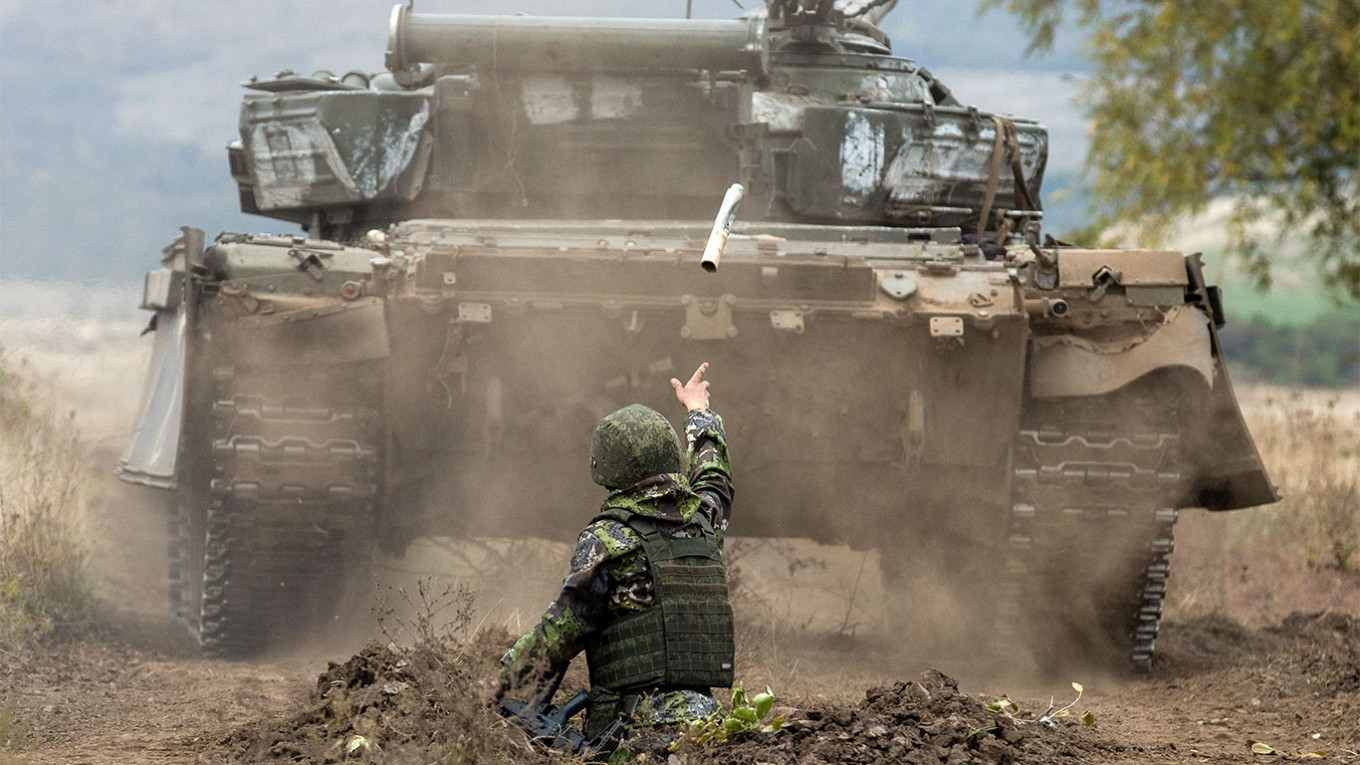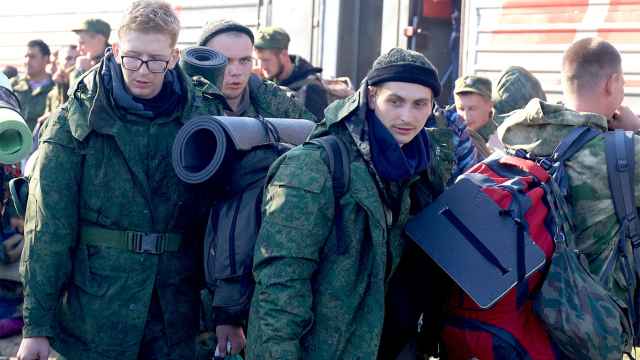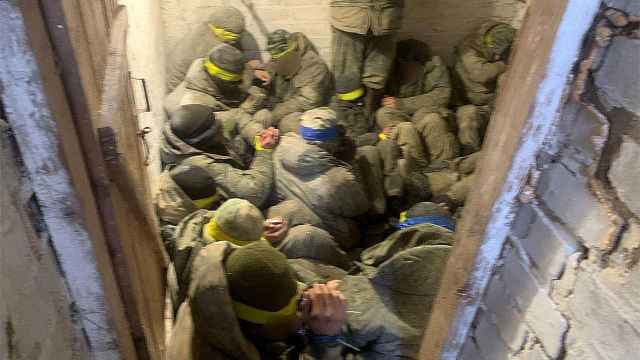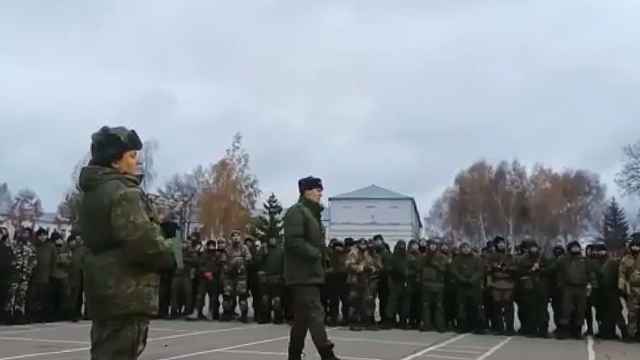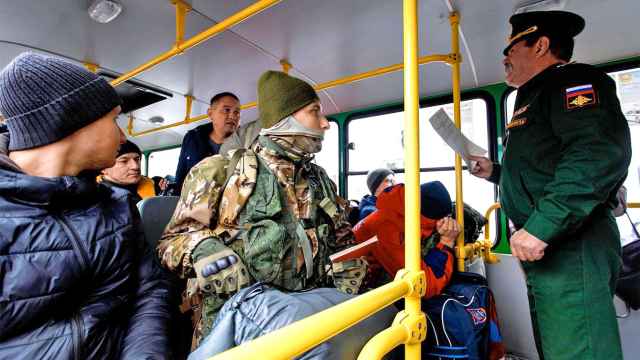Ten days after being mobilized into the Russian army, Igor Puchkov was killed fighting in southern Ukraine’s Kherson region.
The 27-year-old father of two was sent into combat with no military instruction beyond what he had received during his compulsory military service as a teenager, according to relatives.
“We were outraged when he was sent to Ukraine with no training,” his sister-in-law Svetlana Puchkova told The Moscow Times in a phone interview.
“He was promised two weeks of military exercises, but they were only given 30 bullets — they shot once and that was it.”
Mounting evidence of ill-equipped Russian conscripts deployed to Ukraine with almost no military training has sparked bafflement and anger among friends and relatives who spoke to The Moscow Times about the experiences of their loved ones.
Puchkov, from the large Siberian town of Minusinsk, was among hundreds of local men who received draft papers immediately after President Vladimir Putin announced a “partial” mobilization at the end of last month.
Prior to his call-up, Puchkov’s only time in the Armed Forces had been one year of compulsory military service that he completed in 2015.
Puchkov’s widow must now care for their two children, aged three and five years old, on her own.
“He’s gone and she’s left without money, without anything,” Puchkova said. “He was always with a smile on his face, always joking. We don’t even know how he died.”
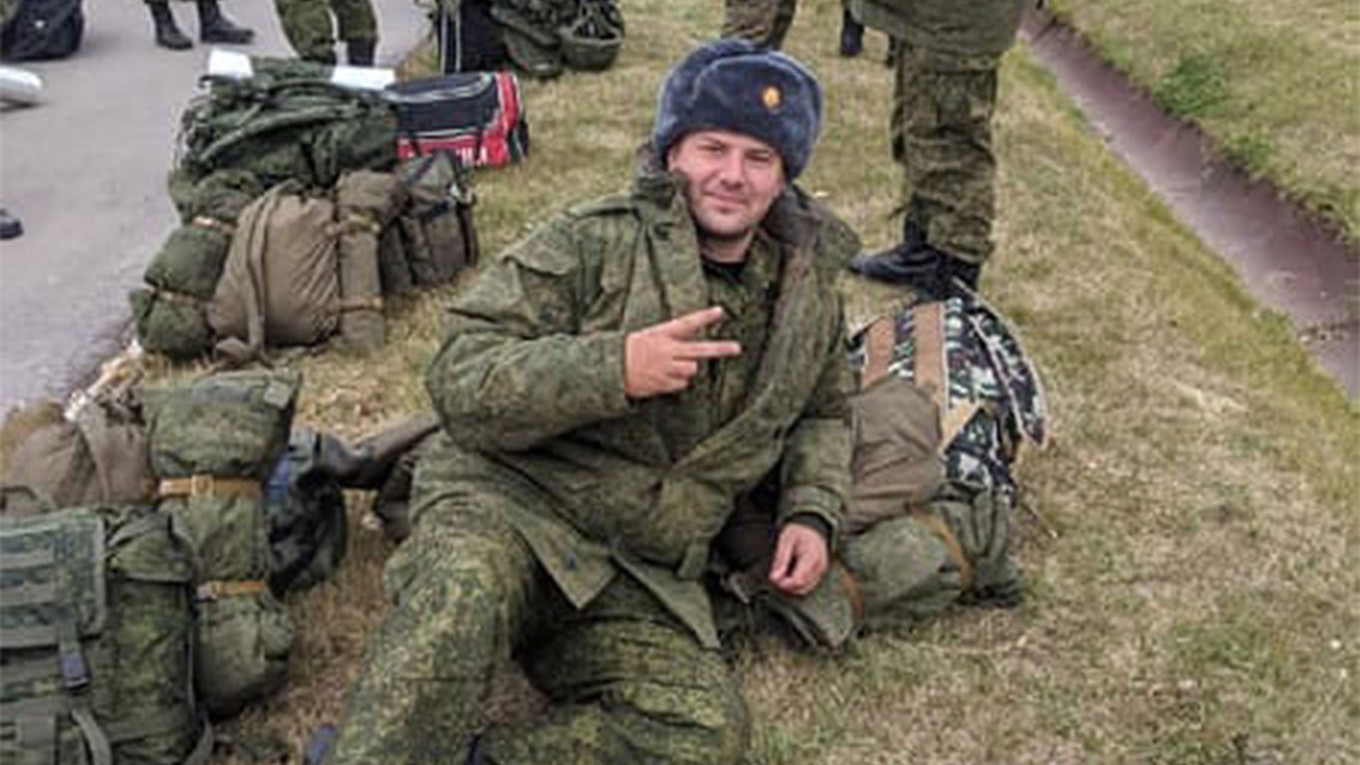
Similarly, construction worker Alexander Parilov, 35, also from Minusinsk, was not provided with additional training before being sent into battle, according to a friend. He died on the same day as Puchkov.
“No one had even held a machine gun,” said Parilov’s best friend, Igor Solondaev, about the training offered to Parilov and the other locals mobilized with him.
“He bought himself a uniform and boots for 35,000 rubles ($567) but he didn’t have time to buy his own sleeping bag. They were not given anything. A week later, they gave them military uniforms and a machine gun — just a day before sending them to Kherson,” Solondaev told The Moscow Times by phone.
“The next day, he was killed.”
A political gamble intended to solve the army’s manpower problem, Russia’s mobilization has been plagued by problems and excesses. Bringing the Ukraine war home to many Russians for the first time, polling data suggests it has put a dent in Putin’s popularity.
Men like Puchkov and Parilov, according to the accounts given by their friends and relatives, did not receive the minimum 10 days of training that Putin said last week every mobilized man “must undergo” before taking part in combat operations.
Worried about the lack of military training, relatives of soldiers from western Russia’s Bryansk region published a video appeal to Putin over the weekend, asking the president to intervene to bring their mobilized sons and husbands back home.
“Our guys are being sent to the frontlines without training,” said the wife of draftee Ivan Terenkov, who was conscripted two days after mobilization was announced.
“Today I got a call from my son, who told me: ‘Mom, help me, get me out of this hell’,” said a woman who identified herself as the mother of mobilized soldier Nikita Tsepanov.
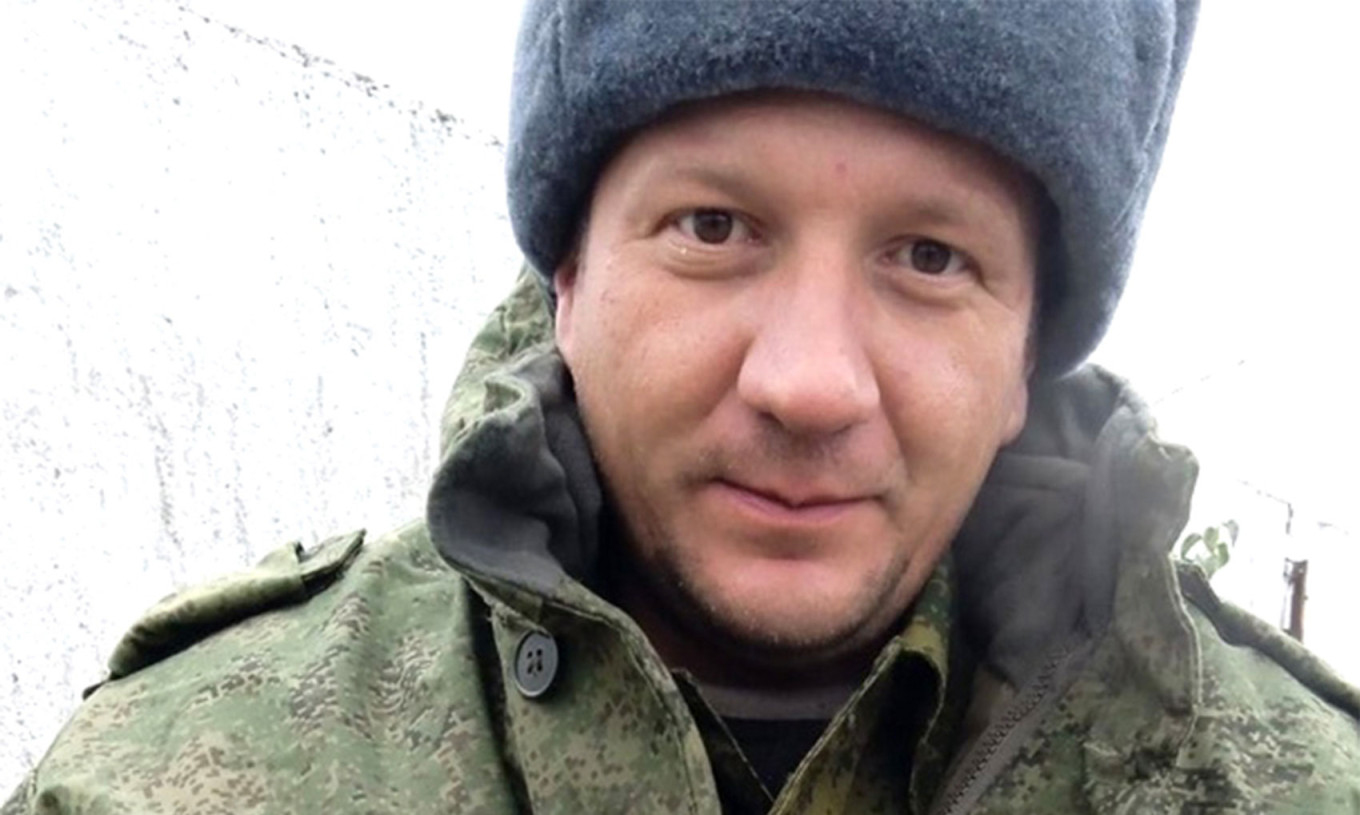
A lack of official transparency has prompted wives and other relatives of mobilized soldiers to create groups and chats on social media to try and find out more information.
Many users in such groups surveyed by The Moscow Times complained that they hadn't heard from their sons and husbands for weeks.
“Why the hell did they send them to Ukraine on the second day? And why were they left without training?” one woman said in a private chat for soldiers' families on social network VKontakte to which The Moscow Times was given access.
While there is little evidence that friends and relatives of dead soldiers are ready to take to the streets in protest, anger toward officials appears to be on the rise.
“There is growing negative sentiment toward the authorities,” said Solondaev, whose best friend Parilov was killed in the Kherson region.
“People understand what mobilization is for, that people are needed. But they don’t understand why draftees are not provided with water or food and people are not given any information.”
Amid the discontent, the Kremlin has appeared keen to signal that mobilization, as it enters its fourth week, is already drawing to a close.
Putin told reporters Friday that mobilization would run for another two weeks.
Moscow Mayor Sergei Sobyanin said Monday that mobilization in the Russian capital was at an end and any outstanding draft papers would no longer be valid.
But the slowing of the pace of mobilization is likely to be of little comfort to the hundreds of thousands families with loved ones on their way to the front.
There has been almost no updates about the whereabouts or health of Alexei Kamashev, a 40-year-old father of six, since he was mobilized from a small village in Russia’s Kirov region, according to his friend and classmate Tatyana Bazhenova.
“His wife is crying all the time. He was given an old push-button mobile phone and called only once. The family doesn't know where he is,” Bazhenova told The Moscow Times.
But locals still apparently support the Ukraine war and mobilization, she said.
“I think the situation will change when coffins start coming back,” said Bazhenova.
A Message from The Moscow Times:
Dear readers,
We are facing unprecedented challenges. Russia's Prosecutor General's Office has designated The Moscow Times as an "undesirable" organization, criminalizing our work and putting our staff at risk of prosecution. This follows our earlier unjust labeling as a "foreign agent."
These actions are direct attempts to silence independent journalism in Russia. The authorities claim our work "discredits the decisions of the Russian leadership." We see things differently: we strive to provide accurate, unbiased reporting on Russia.
We, the journalists of The Moscow Times, refuse to be silenced. But to continue our work, we need your help.
Your support, no matter how small, makes a world of difference. If you can, please support us monthly starting from just $2. It's quick to set up, and every contribution makes a significant impact.
By supporting The Moscow Times, you're defending open, independent journalism in the face of repression. Thank you for standing with us.
Remind me later.



